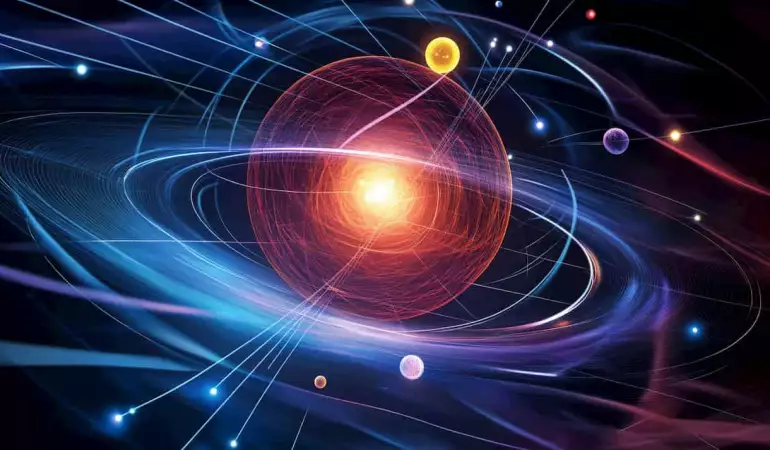"Zero Point Energy: A scientific miracle or a fictional utopia? Here's what the science says
"Zero-point energy is a phenomenon that has long fascinated scientists and futurists. There is still debate as to whether this energy can actually serve to provide the world with inexhaustible sources of energy, or whether it will remain a theoretical concept inspired by science fiction novels. But what is it really, and can we expect to see its practical application in the near future?
January 13, 2025 07:35
According to the Encyclopaedia Universelle, the English term "Zero Point Energy" is defined as zero energy, the lowest possible energy of a quantum-mechanical system; the zero-level energy of a system.
In quantum field theory, zero-point energy is associated with vacuum energy, which is thought to create dark energy in the cosmos (a hypothetical form of energy that fills the space of the Universe uniformly and causes a push (antigravity) that explains the accelerating expansion of the Universe. The nature of dark energy is unknown). The very concept of "zero-point energy" was introduced by Max Planck in Germany in the spring of 1911.
What makes zero-point energy special?
Zero-point energy is a theoretical principle of physics, related to the laws of quantum mechanics. Even in a completely empty space, the so-called vacuum state contains energy. This means that even in the lowest energy states there is some residual energy due to fluctuations at the quantum level. This idea may seem paradoxical at first, but it is based on the framework of advanced quantum theory.
According to a study published in the Journal of Energy and Power Engineering in 2023 by researchers Z. Bahman and M. Masoud entitled "Is Zero Point Energy Science or Fiction":
"Zero-point energy can be used as a potential energy source; however, the idea is still under debate. Zero-point energy is sometimes associated in pop culture with pseudo-scientific claims of "free energy" and perpetual motion machines. These claims are generally unsubstantiated and go beyond what is currently known about ZPE (Zero Point Energy - ed.). There are currently no practicable methods or tools to extract useful energy from ZPE, although it has intriguing theoretical implications and has been studied in the context of quantum field theory. Within the limits of existing knowledge of physics, researchers are still exploring the feasibility and potential uses of this concept."
To date, the extraction and management of zero-point energy under realistic conditions is still a major challenge. Scientists and engineers are exploring how they can use the concept to develop new energy sources. Some scientists believe that zero-point energy extraction could answer major energy challenges by providing a virtually inexhaustible and clean form of energy.
But sceptics argue that much research is still needed before we can talk realistically about the applications of zero point energy. Nevertheless, the idea has strong traction not only in the scientific community but also among ordinary people.
Further research is needed
In summary, while zero-point energy is a legitimate concept within the framework of quantum physics, its practical applications and the possibility of harnessing it as a source of useful energy remain a topic of ongoing research and debate.
As in any scientific field, alternative approaches, critical analysis and open discourse are essential to improve our understanding of zero energy.
Further research and experimental validation are indispensable to fully understand the nature, potential and limitations of this exceptional energy.
The study of zero-point energy remains an active and evolving area of research, contributing to our understanding of the fundamental properties of the universe and the "possibilities offered by quantum physics".
Will this mysterious source of energy become the reality of our times? The answer to this question could be one of the most important technological breakthroughs of the 21st century, which will not only transform the way we think about energy, but also open new doors to uncharted horizons of research.




